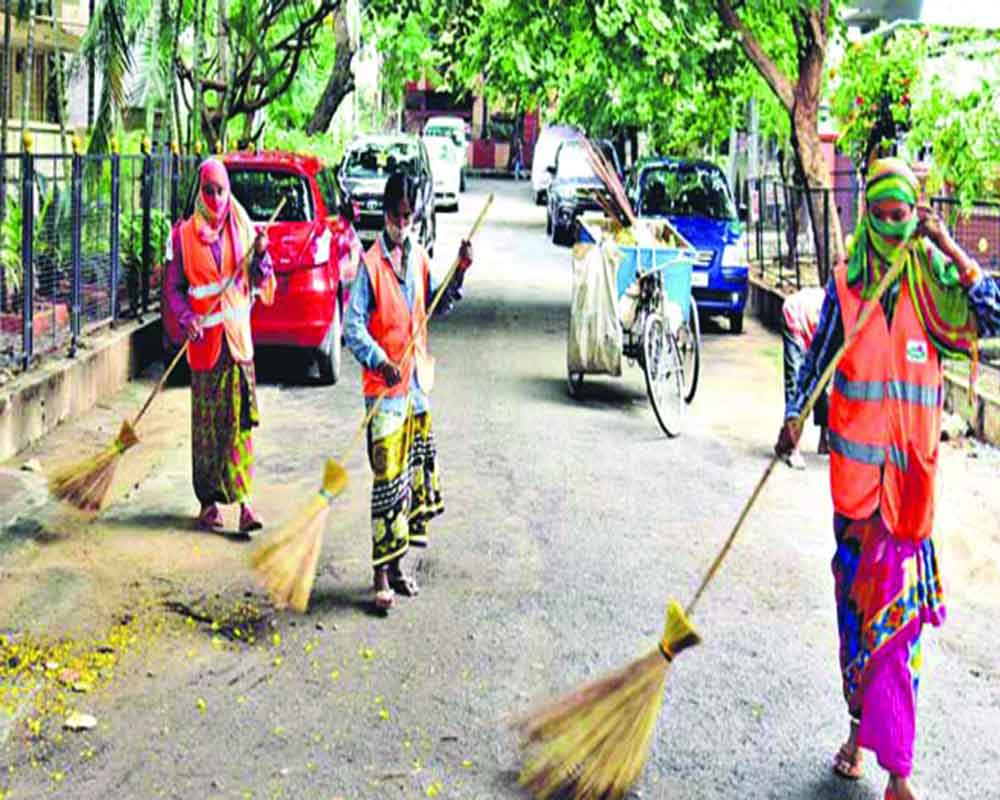Functional domain of MCD must be restored, clear duties assigned
Delhi Municipal Corporation (Amendment) Act 2022 and NCTD (Amendment) Act 2021 specify the governance structure of Delhi. The 2022 Act has introduced unification of three municipal corporation of Delhi (MCDs) on the grounds of equity (tackling uneven municipal revenue), optimal utilisation of resources, transparency, and improved governance with overarching powers to centre to control MCD, reduction of the seats (272 -250) ,removal the office of Director Local Bodies and inclusion of e-governance system for citizen centricity along with efficiency in expenditure (Rs 1500 million annually) with one Mayor and Commissioner in place of three, 25 committees in place of 75.The 2021 Act places LG as Government of NCTD consolidating overall governance with representative of centre. Yet it is noted that (I) the three-tier governance structure in Delhi is different from other states;(ii)One or other municipal functions are delivered by each of the three tiers; and (iii) Accountability at grassroot level is fairly diversified at the cost of citizen centricity and grievance redressal. Accordingly, current structure of MCD emerging from the three governance characteristics has over a period of time developed five mainweaknesses such as (i) erosion of functional domain with gradually withdrawal of functions namely Water, sewage, PWD roads, in-situ slum development and rehousing, city transport, poverty alleviation and electricity,(ii) dilution of role of Mayor with Inadequate (one year) tenure (iii) lack of downward accountabilitybelow town hall/zonal level of municipal administration , (iv)widening of resource gap to meet expenditure requirement even at current level of assignments and (v)absence of inter -ULB (urban local Body) coordination in the cityregion (Gurugram, Faridabad, Kundli, NOIDA, and Ghaziabad popularly known as central NCR) pertaining to waste management,connectivity, mobility,pollution control and disaster management.
MCD is also expected to perform tasks towards achievement of objectives of MPD 2041 (a future ready, 24*7 city), green blue policy (interim agenda of COP 26 and zero carbon city 2070) along with implementation of GoI urban missions and NCAP (National Clean Air Programme).Therefore,structural reforms should be considered. First, the functional domain of MCD may be restored with the assignment of functions as handled by mega cities in India and elsewhere covering local economic development, slum improvement and development /delivery or control on water, sanitation,city transport and electricity, etc. Second,the tenure of Mayor should be 2.5 or 5 years.The Mayor and commissioner should have adequate powers and authority for mutual coordination and complimentary role. Third, the decentralization below the zone should have institutional arrangements likeward committees with local councillor as chairperson and local representatives (women, professionals, weaker sections) and a nodal officer from ULB as in Bengaluru.The committee should prepare micro plan for waste management, drainage and other local serviceswith 750/1000 households using the proactive community leaders and NGOs including exclusive allocation and bottom-up budgeting.Bengaluru (fastest mover megacity:2021)has achieved 53% segregation and decentralized treatment of waste as a landmark for megacitiesand drastic reduction in the waste going to landfill. Fourth, the innovative methods of resource mobilization for capex and opex should be used covering monetization of land,land value captureand municipal bonds and long-pending revision of property tax rates. Fifth, MCD should play the mother city role on jurisdictional and distributional issueswith other ULBs.Finally, there is also a need to deliberate on overall governance issue on functional domain of vertical and horizontal layers of governance so as to make the capital city at par with similar governance structures elsewhere. The transition period of next MCD elections provide an opportunity to deliberate and decide on these issues amicably.
(The writer is Coordinator, Centre for Urban Studies, Indian Institute of Public Administration, New Delhi. The views expressed are personal.)


























